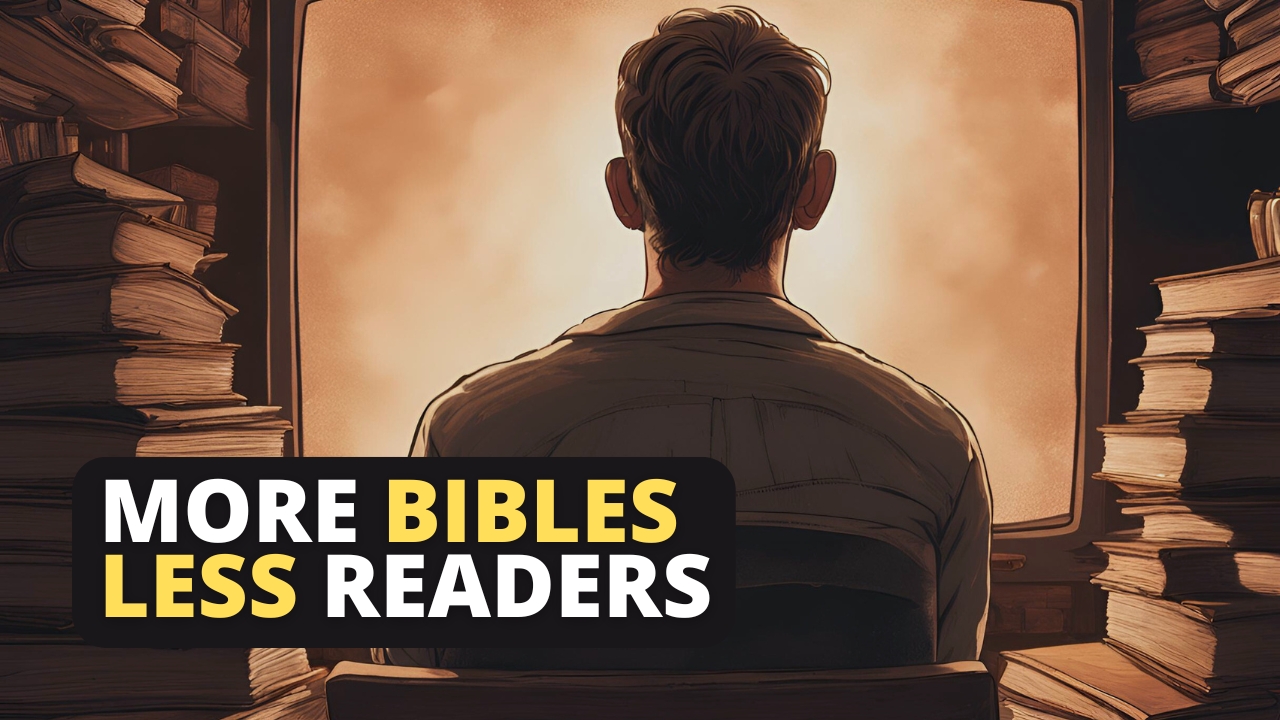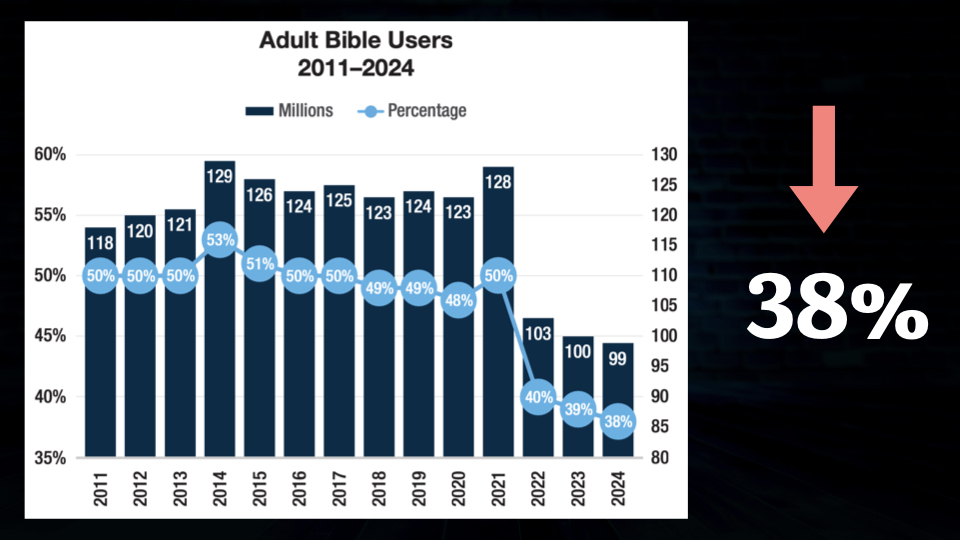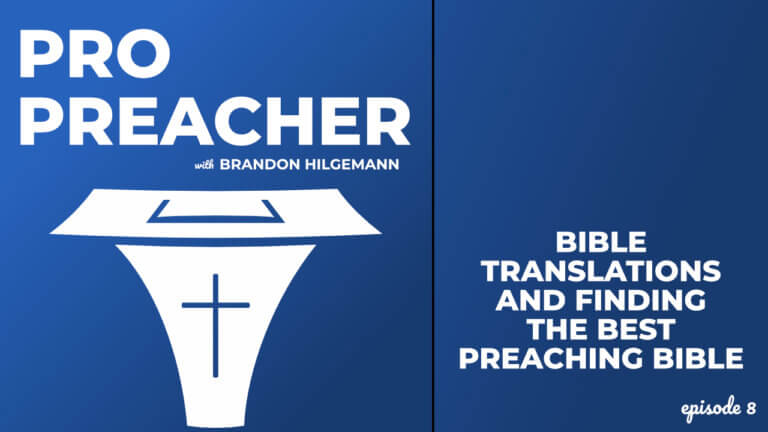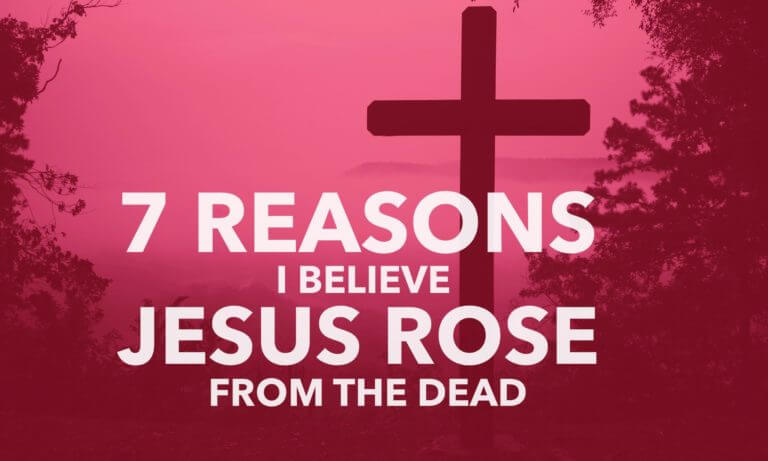How The Bible Became More Available But Less Read Than Ever

Imagine you are lost in the woods on a cold night and have nothing but a Bible. Would you ruin it to help get through the night?
Would you use it to help start a fire or to rip pages out and stuff them in your clothes for added insulation?
It’s an interesting scenario to ponder. If I were alone in the woods with a copy of Ulysses, the Great Gatsby, or even Augustine’s Confessions or Lewis’ Chronicles of Narnia, I wouldn’t hesitate. But when I think about the Bible scenario, I have to say, “No.”
There is something reverent and holy about the Bible that I couldn’t destroy or abuse like I would any other book. Is that strange? I mean, it’s just a book made of paper and ink, but it’s unlike any other book.
Do We Take The Bible For Granted?
The name “Bible” comes from the Greek word Biblia (βιβλία), which means books. But the Bible is not just any collection of books. It is THE BOOK. That’s why we often see “Holy Bible” printed on the outside cover. It’s a holy book, meaning it is set apart and different from all other books.
It is not the materials or the form of the book itself that makes it special. The Bible has been made using a variety of materials and forms from tablets of stone, to scrolls on papyrus, to leather-bound books, and now digital devices made of glass, metal, and plastic. It’s not the material, but what the book contains that makes it holy and special, unlike any other book.
This book contains the words of more than just some human author. This is the inspired word of God.
The Bible is a collection of 66 books of multiple genres, written by 40 authors over 1,500 years in 3 languages, telling one story. The Bible is not a fictional story. It is the history of God and his plan to redeem humanity.
Do you ever take the Bible for granted?
We have so much access to it today. We have a Bible under every seat in my church. I have a dozen or more in my office. I have another dozen or so at home. We can download a free Bible app on our phones or read it online. And if you can’t read or just don’t like reading, you can also listen to it for free! The Bible has never been more accessible and freely available.
The Bible wasn’t always readily available.
How Scripture Became More Accessible Than Ever Before

When I visited Israel a few years ago, we visited the church of the Nativity in Bethlehem. And I was thrilled to see the statue of St. Jerome, the man who, from a room in a cave beneath this same church, first translated the Bible from Hebrew and Greek into Latin. It was an enormous feat that took decades of his life.
Jerome completed the translation in AD 400 , and it was given the nickname “Vulgate,” meaning “common” because it was in the common (or vulgar) language of Latin-speaking people.
The Latin Vulgate became the dominant Bible used in the Western world for over a thousand years. But what started as a worthy endeavor to translate the Bible into a common language became a problem.
The Roman Catholic church authorized the Vulgate as its official translation, and any attempt to translate the Bible into a different language was met with severe consequences.
One of the driving forces of the Protestant Reformation in 1517 was Martin Luther’s desire to translate the Bible into the common language of his people in Germany. This nearly cost him his life, and he had to hide while he did the translation work. His New Testament was finished in 1522.
The first English Bible translated from the original language was by William Tyndale. He had to flee England and never was able to return. He finished the New Testament in 1525 and parts of the Old Testament later. But Tyndale never finished the entire Bible because in 1536, his location in Antwerp, Belgium, was betrayed, and he was executed for his crime of translating the Bible.
Tyndale was first strangled and then burnt at the stake. His dying words were a prayer: “Lord! Open the king of England’s eyes.”

Shockingly, the king of England changed his mind within a few months. He commissioned an English Bible that was made available two years later. Later, in 1611, the King James Bible was published, which one study found preserved up to 80% of Tyndale’s words.
It wasn’t until the 1960s at the Vatican II council that the Catholic Church allowed church services to be in any language other than Latin and the Bible to be read in any language other than Latin. Tragically, Jerome’s common-language Bible became a barrier for anyone who wanted the Bible in their common language.
Here’s the point: Bible translators around the world have sacrificed their lives to make the Bible available in the common languages of the people so that you and I can read it today.
Here’s the problem: We live in an unprecedented era of Bible access, and yet, biblical literacy is falling. Ask people on the street about Joshua, Jeremiah, Jonah, or Job, and you’ll likely be met with a blank stare.
Unprecedented Bible Access and Unprecedented Bible Ignorance Today

The American Bible Society released its annual State of the Bible report. Did you know they found that those who use the Bible regularly report having more hope, a greater sense of purpose, less stress, and are more likely to indicate that their life is flourishing than people who don’t?
That’s amazing! Many of you know this is true. Your life has been better since you’ve begun studying the Bible.
But here’s what’s sad: Only 38% of Americans say that they use the Bible throughout the year.
This could be anywhere from daily reading to only opening it 3-4 times a year outside church.
That’s down from a baseline of 50% just a few years ago. It’s concerning.
We have more Bibles than ever, and fewer people know anything about it.
Access is no longer the problem. The problem today is attention.
My Hope and my prayer is that we will be a church that loves the Bible, cherishes the Bible, stands on the foundation of the Bible, and doesn’t just know the information. Because there are many Christians who soak up a lot of information and don’t do anything with it.
May we live it with our lives so that it transforms us. And as we go out and live according to this book, it will transform the world around us, too.
Let’s be a church all about loving the Bible, built on the foundation of the eternal rock of God’s Word.





Thank you for this. I want to start raising this awareness to my fellow believers so that together we may bring others back to relying on the Bible, and also to encourage others to start reading the Bible.
Furthermore, I also need advise with regard to mourning/grief and sex, their relation, particularly regarding permission. If a partner in marriage is grieving their loved one, is it sin to have sexual intercouse or not?
Your assistance will be highly appreciated.